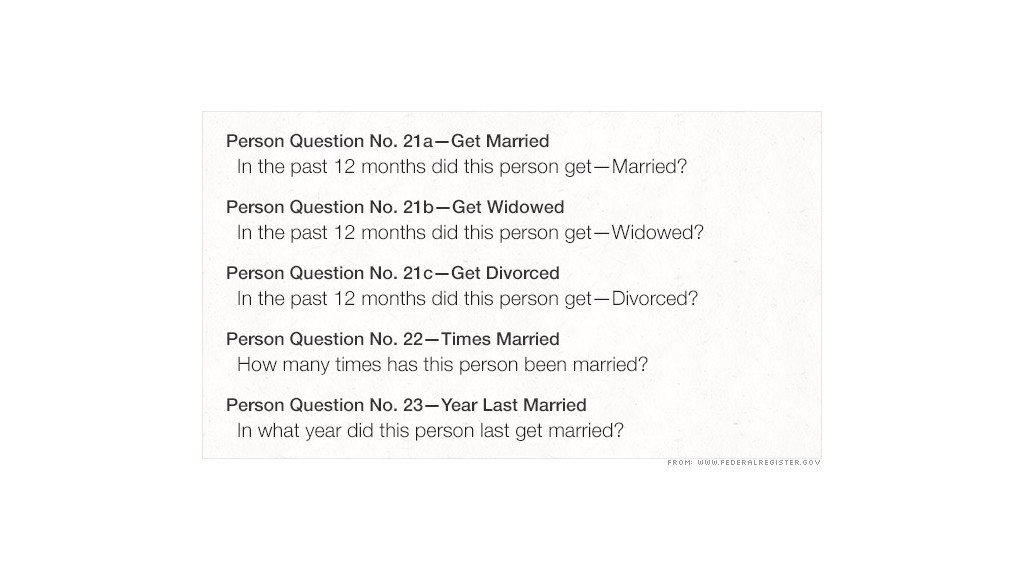
Do we really care how many Americans are getting married and divorced anymore?
The Census Bureau has proposed eliminating several marriage and divorce-related questions on the American Community Survey, putting them in the "low benefit and low cost category."
But experts say that would be a mistake. They claim the change would lead to a gaping hole in data regarding the social and economic changes in the American family, which could have implications on everything from social research to Social Security.
"What happens in the family doesn't stay in the family," said Brad Wilcox, director of The Home Economics Project at the right-leaning American Enterprise Institute. "It reverberates and ripples across the entire society in economic, social and cultural ways that are important to track."

Census isn't the only way to track marital status. But researchers said that the ACS is the most accurate and current source of marriage and divorce data. The information is also applied to other research areas, including income inequality.
Without the data from these questions, the recent discovery of the high rate of baby boomer divorces would have gone undetected, according to Steven Ruggles, president of the Population Association of America.
"A lot of states are underreporting their divorce and possibly marriage numbers. The much talked about halted decline in divorce hasn't taken place," he said.
While getting married or divorced requires a trip to court, not every state reports the data. D'Vera Cohn, a senior writer who studies demographics at the Pew Research Center, cited data that showed states that don't give divorce statistics, which includes California, account for 20% of the population.
The data from these questions are also used to create population models and estimate the percentage of marriage that will end in a divorce, which informs government policy and other decisions at the federal level.
For instance, the Social Security Administration could use the data to determine how many people will be divorced or married by the time they collect benefits, explained Ruggles. "If you want to figure out when Social Security will go broke, you need to have a model that incorporates the divorce rate to project what will happen in the next few years to make a reasonably-informed guess."
Millennials say no to marriage
The Office of Management Budget will decide whether to keep the questions and any changes would go into effect in 2016, said Cohn.
The Census Bureau opened up the proposal for public comment and reportedly received hundreds of comments, including a letter from Ruggles.
"It's not often you see in Washington academic researchers -- many of who are perhaps liberal -- along with socially conservative groups that use marriage data for an advocacy agenda team up," said Cohn.


